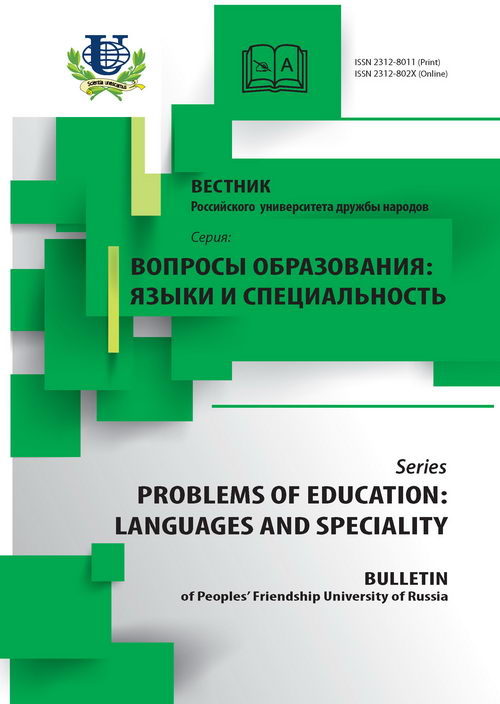CULTURAL ASPECT IN TEACHING RUSSIAN IN ETHNICAL GROUPS
- Authors: Alekeshova LB1, Zhalmuhanova ZT1, Kabdulova GM1
-
Affiliations:
- Atyrau State University named after H. Dosmukhamedov
- Issue: No 5 (2015)
- Pages: 222-229
- Section: EDITORIAL
- URL: https://journals.rudn.ru/polylinguality/article/view/13033
- ID: 13033
Cite item
Full Text
Abstract
The turn of the 20-th and the 21-st centuries is characterized by an increase in the interest in various areas of society to the problem of culture. Taken for the study, the cultural aspect of teaching of the Russian language in the ethnical groups is a topical issue at present. The cultural vocabulary of Russian and native languages in the comparative aspect has been used as the resource for the study, since the influence of native culture in teaching Russian is an object of researchers’ great attention and growing interest.The main objectives of linguistic and cultural studies are to develop the mental and moral world of learners, national and personal self-awareness, appreciation and understanding of values of other cultures, cultural awareness through the target language.The complexity of the implementation of this program, in our opinion, is, firstly, to find for the students the optimal ratio between the material of Russian and native culture; secondly, to develop a technique by which information on the national culture would be introduced in the educational process smoothly, becoming a necessary additional means to better lighting the realities of Russian culture and adequate understanding by Kazakh students. The introduction of the material on native culture should also contribute to expanding horizons and knowledge of students in the country, increasing the motivation of learning.When forming and correcting the communicative competence of the ethnical students it must be taken into account the diversity of the social, cultural and linguistic environment in which Russian is the language of teaching. When learning Russian and native a language the educational process must take place in a cultural and linguistic contact and has to be a purposeful regulated form of implementation of a contact.
Keywords
Culturology/cultural studies, cultural aspect, ethnic and cultural studies, realities, non-equivalent vocabulary, communicative competence, cultural studies competence, linguistic and cultural studies, culturological/cultural approach, national culture, national identity, tradition, Russian studies, the dialogue of cultures
About the authors
L B Alekeshova
Atyrau State University named after H. Dosmukhamedov
Z T Zhalmuhanova
Atyrau State University named after H. Dosmukhamedov
G M Kabdulova
Atyrau State University named after H. Dosmukhamedov
References
Supplementary files














